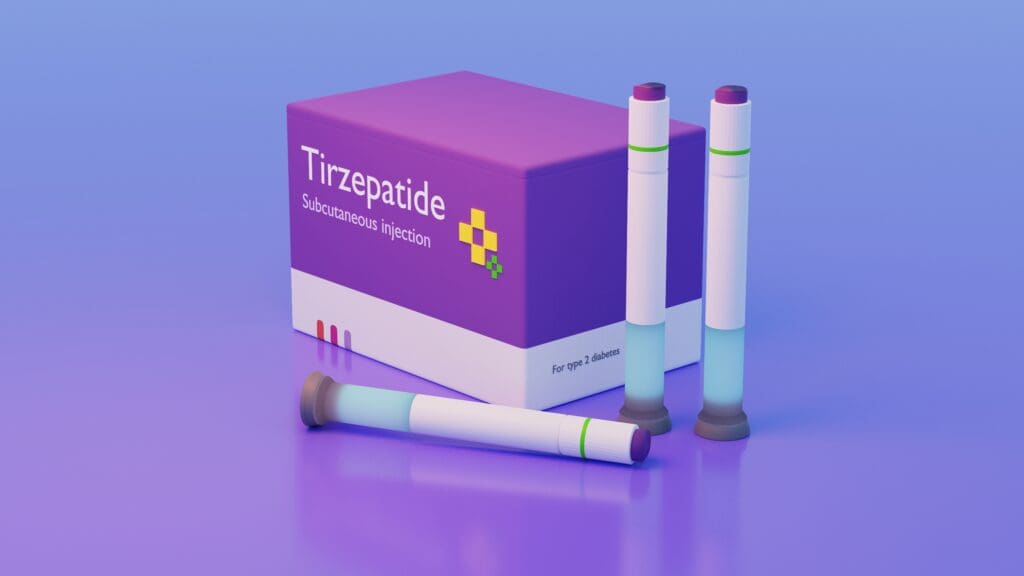

Medical Director
Zepbound versus Wegovy: Which one is better?
- GLP-1 receptor agonists (GLP-1 RA’s) are newer medications that were initially released as treatment for diabetes
- In higher doses, they have shown promising results in weight loss also
- Wegovy (semaglutide) was the first GLP-1 RA approved for weight loss by the FDA
- Zepbound (tirzepatide) was just recently approved by the FDA
- Early data shows better weight loss with Zepbound/tirzepatide than Wegovy/semaglutide

What are GLP-1 receptor agonists and why do they work?
GLP stands for “glucagon-like-peptide.” GLP-1 receptor agonists are molecules that can bind to the same receptor in your body. Basically, glucagon-like peptide helps your body secrete more insulin when you eat carbohydrates. A side-effect of this hormone is that it also slows gastric emptying, meaning that food you take in will stay in your stomach longer. The overall effect of more insulin and slower gastric emptying leads to a decrease in hunger.
Zepbound versus Wegovy: Which one is better-semaglutide or tirzepatide?
 We are in the very early history of these medications, and large-scale studies on efficacy and side-effects are lacking. However some early data suggests that tirzepatide would be the winner in the Zepbound versus Wegovy battle. A 2023 study by Azuri et al showed 17.8% total body weight loss for tirzepatide vs. only 12.4% total body weight loss for semaglutide. The cost was also 20% lower for the tirzepatide group, despite the fact that higher doses of this medication were used. Their conclusion is that it costs $985 per 1% of body weight reduction for tirzepatide and $1845 per 1% of body weight reduction for semaglutide. The fact that similar dosages were not used in the two groups, however, could effect the actual outcome of this study.
We are in the very early history of these medications, and large-scale studies on efficacy and side-effects are lacking. However some early data suggests that tirzepatide would be the winner in the Zepbound versus Wegovy battle. A 2023 study by Azuri et al showed 17.8% total body weight loss for tirzepatide vs. only 12.4% total body weight loss for semaglutide. The cost was also 20% lower for the tirzepatide group, despite the fact that higher doses of this medication were used. Their conclusion is that it costs $985 per 1% of body weight reduction for tirzepatide and $1845 per 1% of body weight reduction for semaglutide. The fact that similar dosages were not used in the two groups, however, could effect the actual outcome of this study.
Why would Zepbound/tirzepatide have better weight loss than Wegovy/semaglutide?
Although in the same class, these two injectable weight loss medications are not exactly the same. Wegovy/semaglutide works only on the GLP-1 receptor, whereas Zepbound/tirzepatide acts on both GLP-1 and GIP receptors. GIP stands for gastric inhibitory polypeptide receptor. This receptor is found on the beta cells of the pancreas, which also aids in the secretion of insulin by the body after eating. Like the GLP-1, it also reduces gastric emptying but has the added effect of suppressing appetite in the hypothalamus. This also gives tirzepatide the edge in the Zepbound versus Wegovy battle.
What are the side effects of semaglutide and tirzepatide?
The side effect profile is very similar for these two medications and includes:
- nausea and/or vomiting
- constipation
- abdominal pain
- GERD (acid reflux)
Many other side effects have been reported as well. One of the most severe is a certain type of thyroid tumor that has been seen in patients on these medications.
Conclusion
Although early results for these medications seem promising, the verdict on long-term effectiveness and side effects is still out. In addition, the tremendous cost of these drugs in combination with the number of people who could benefit from them would probably cripple the entire healthcare system. For these reasons, insurance typically does not cover these drugs for weight loss purposes alone. For many patients, a surgical option like a gastric sleeve would likely provide much better long-term weight loss results at a much lower cost and side-effect profile. Cautious optimism is advised, and future large, long-term studies will bring new data to light that will ultimately solve the puzzle.
About Dr. Trace Curry

Medical Director
Dr. Trace Curry is the Medical Director of JourneyLite Surgery Center and JourneyLite Physicians. With locations in Ohio, Kentucky, and Indiana, he has a comprehensive obesity treatment team offering weight loss surgery, gastric balloon, and weight loss medications like Zepbound and Wegovy. If you would like to make a virtual or in-person appointment with Dr. Curry to discuss your weight loss options, just call us at (513) 259-2555 or click on the “Appointment” button!



